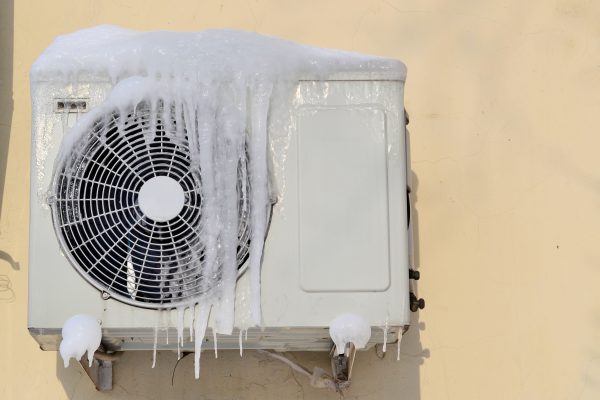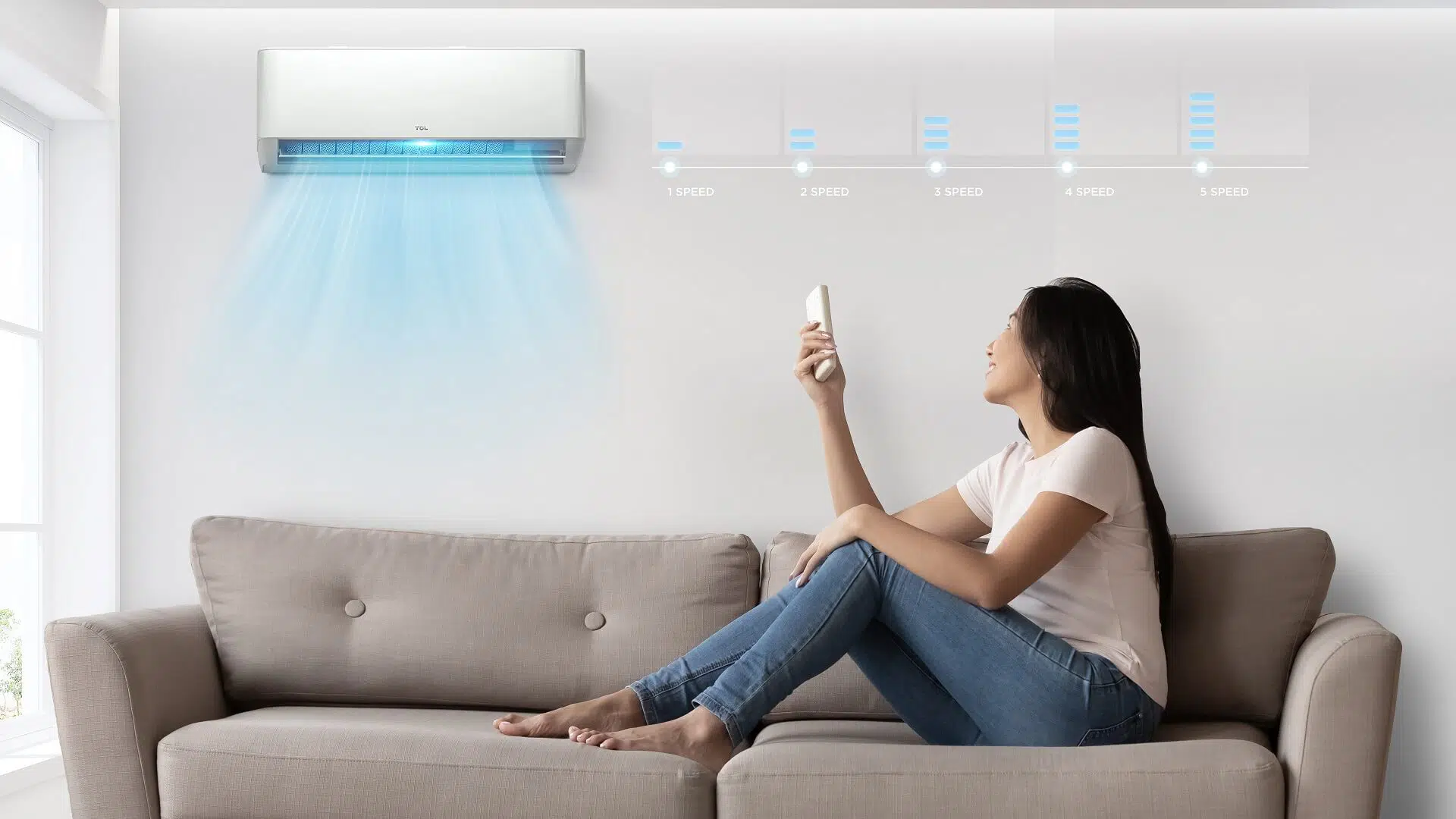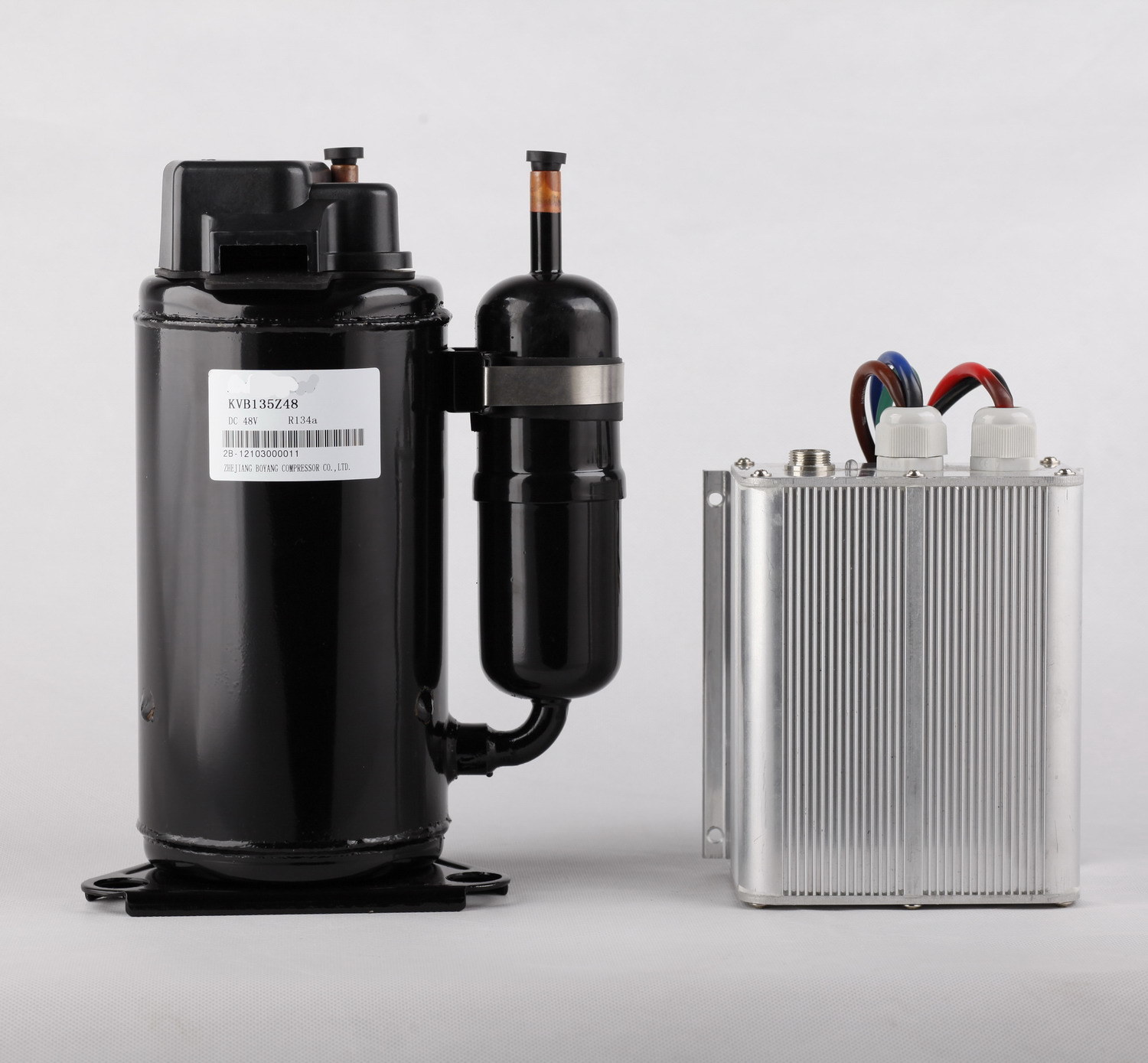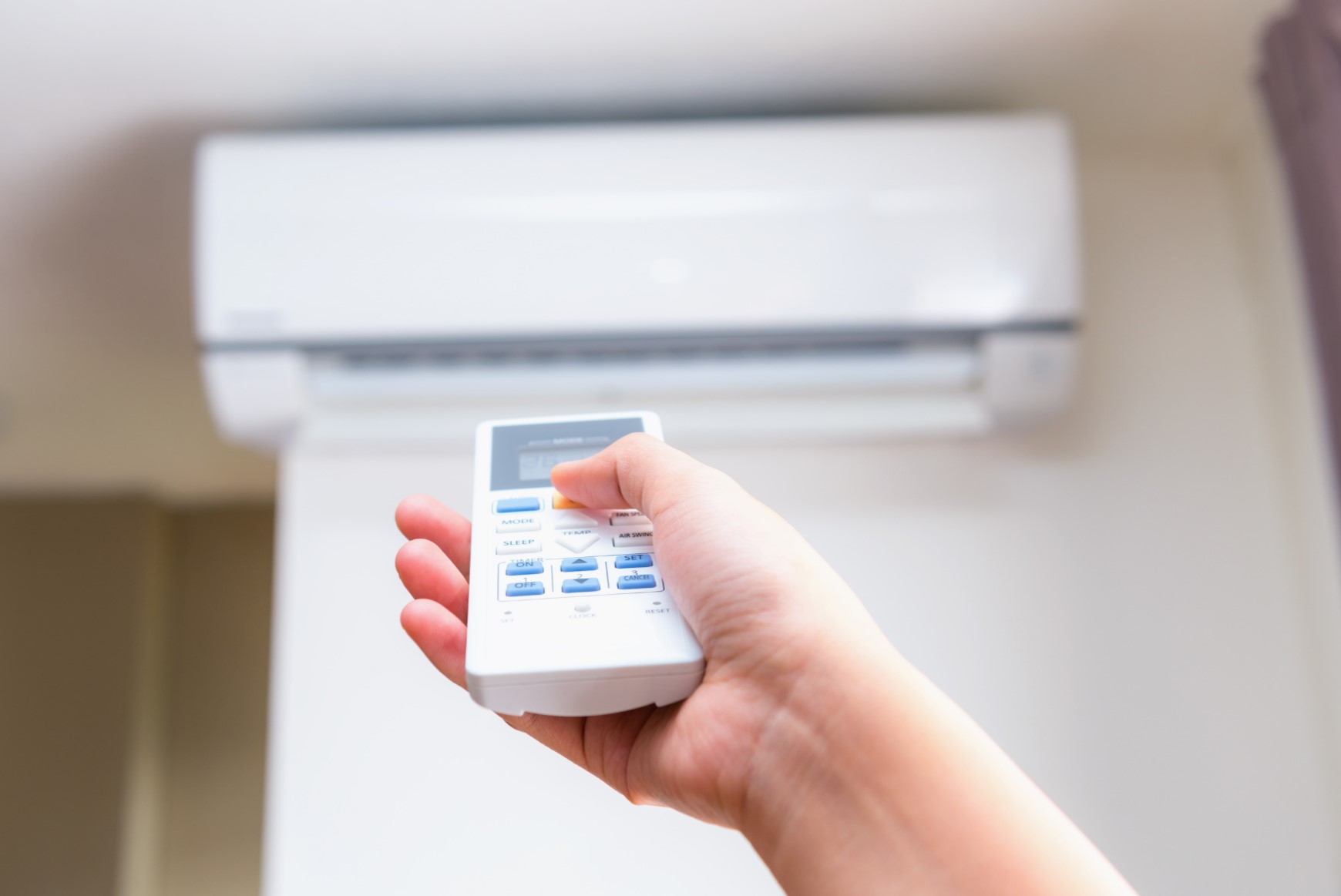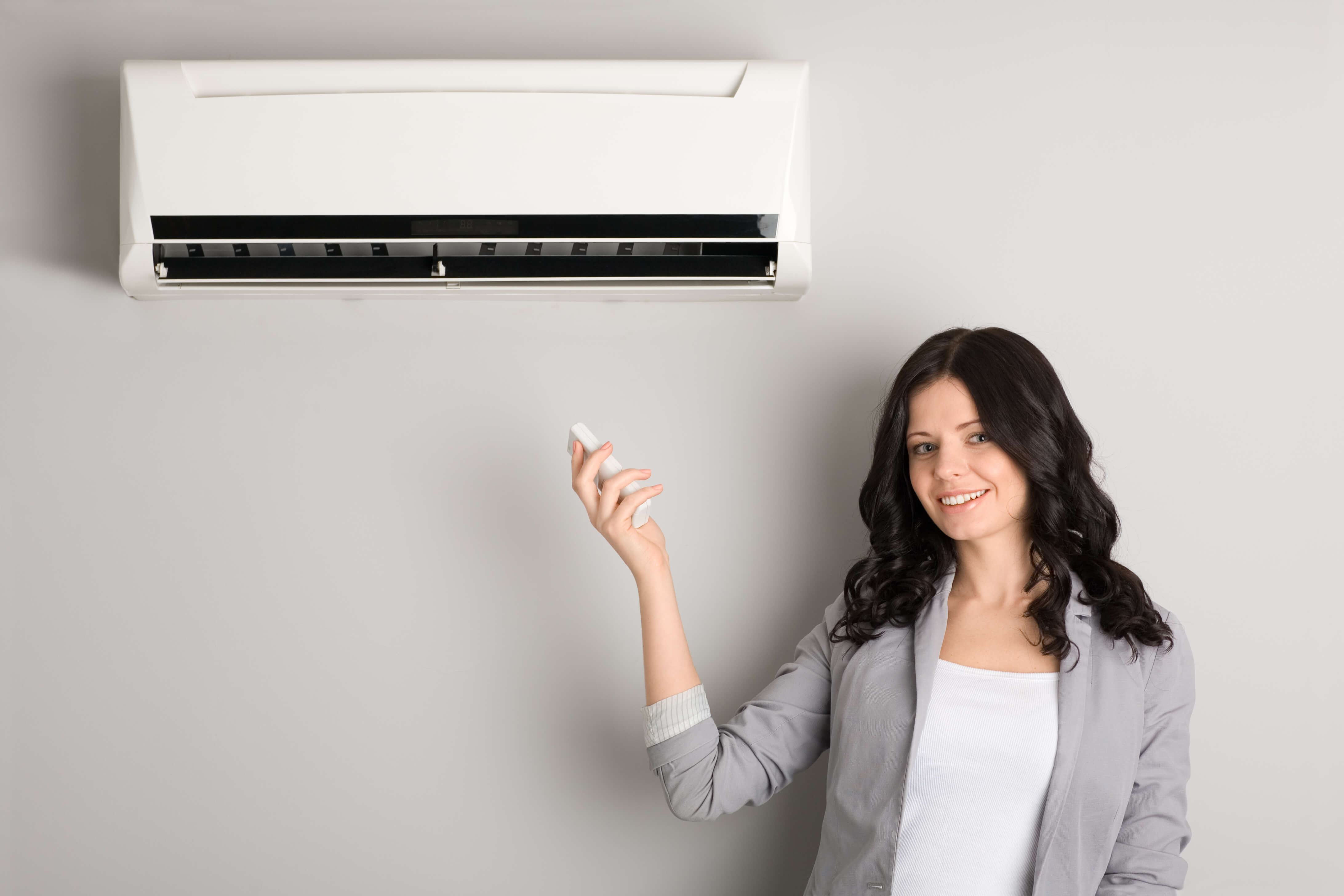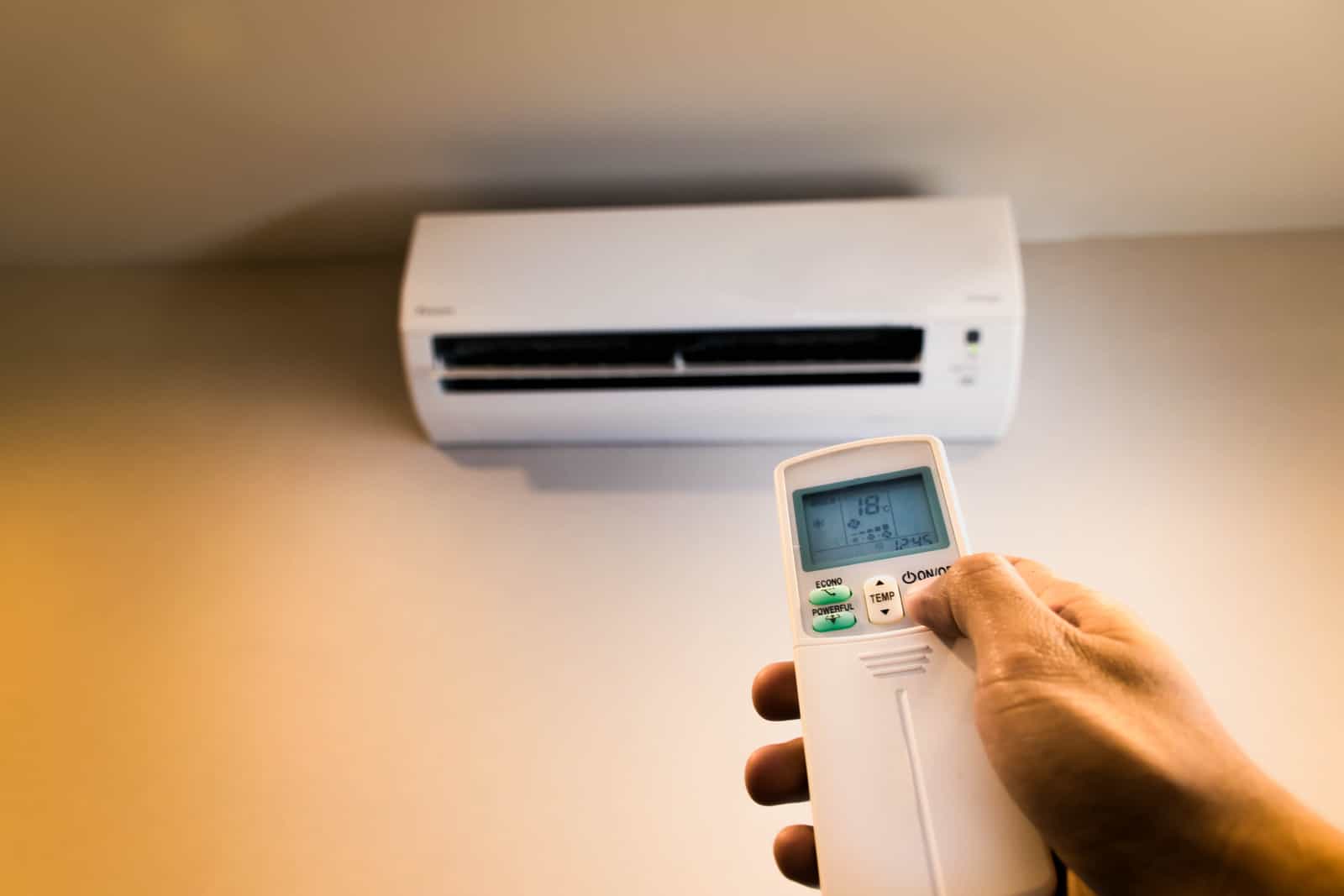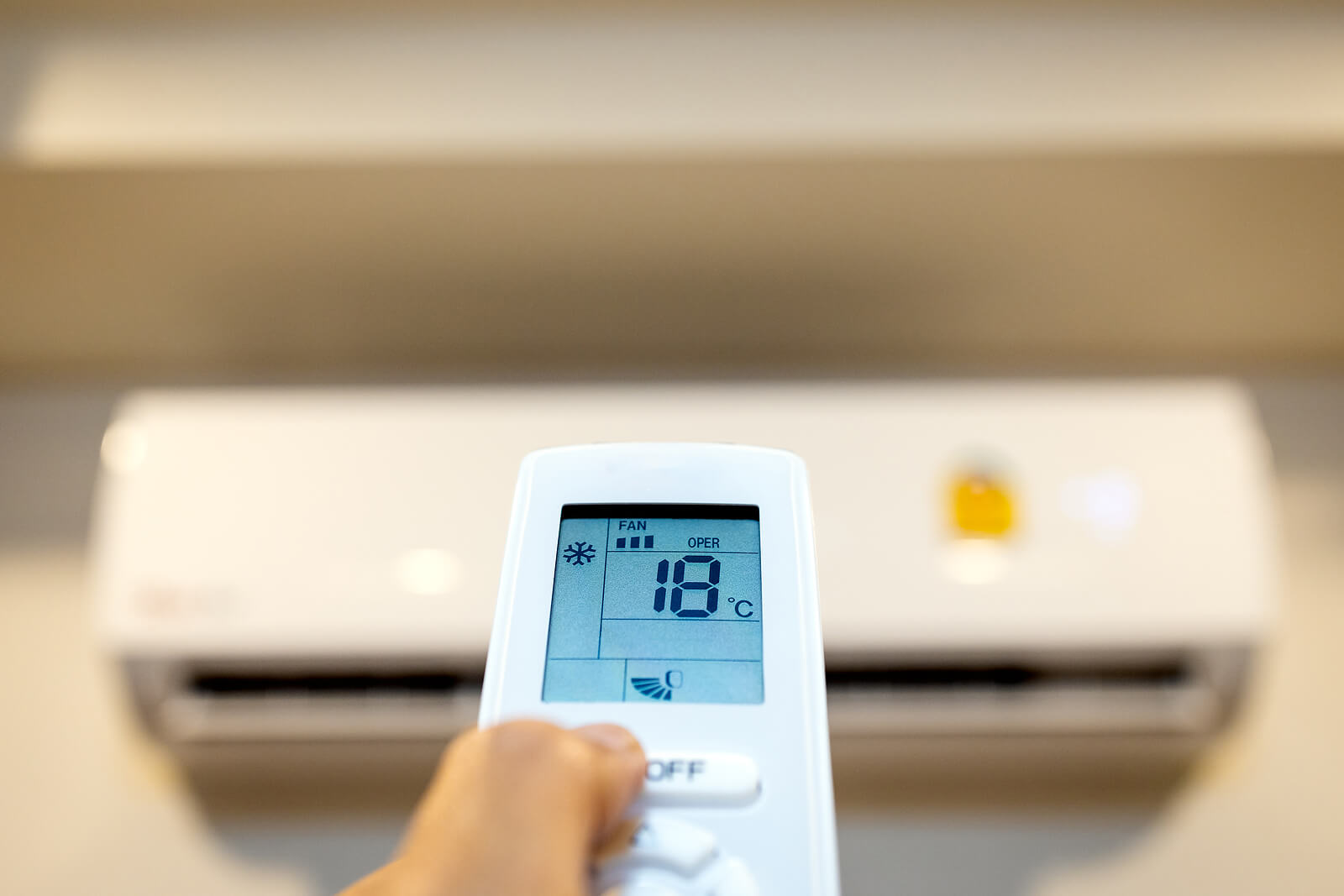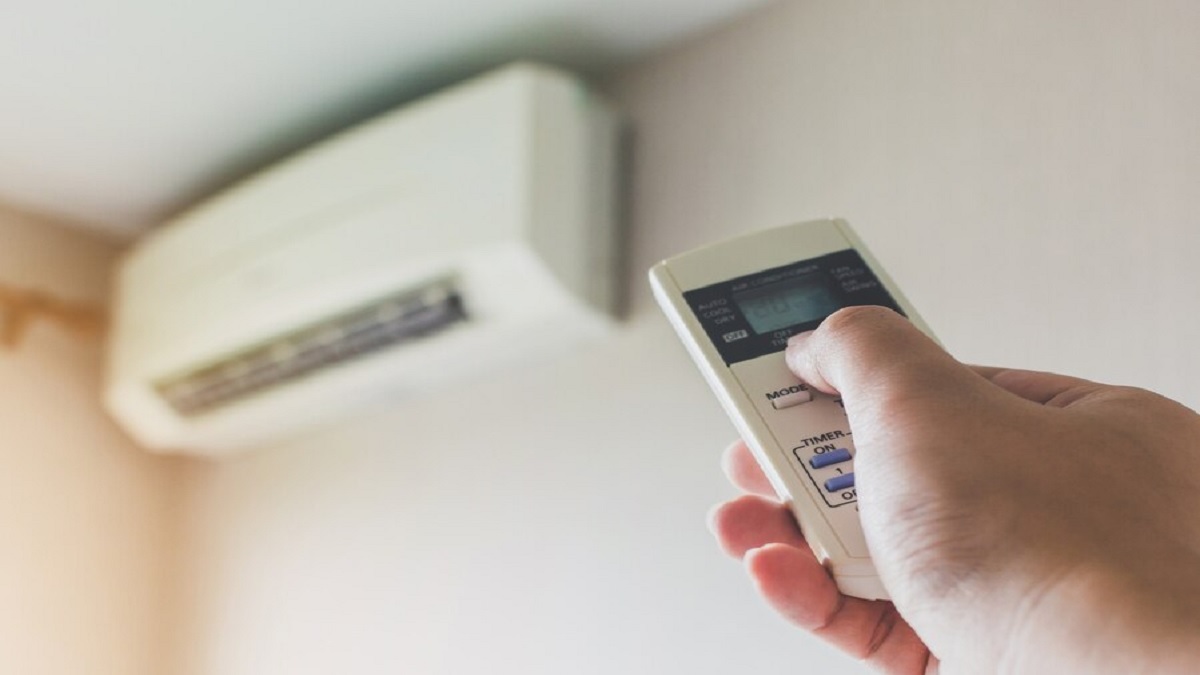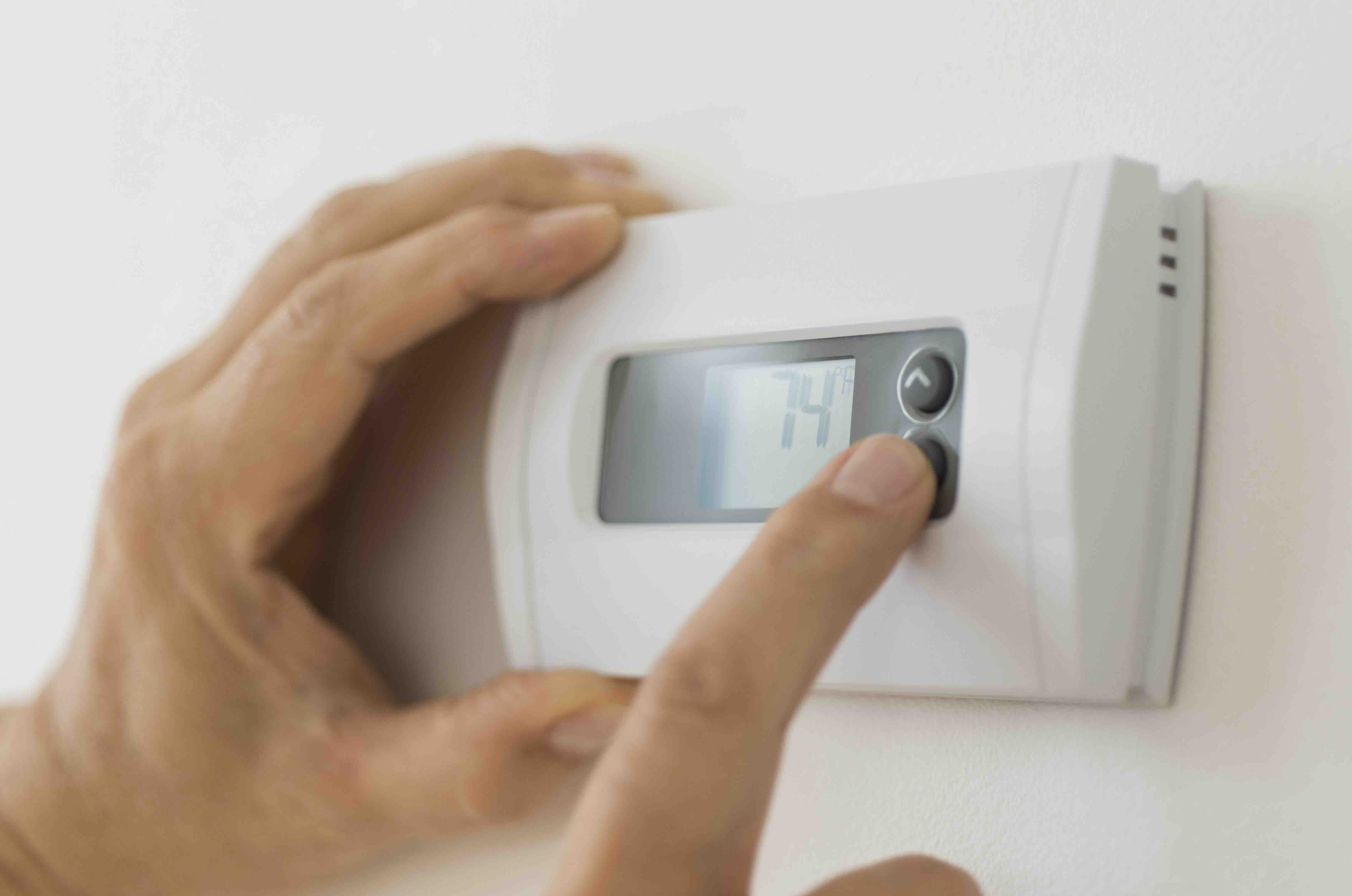Home>Home Maintenance>What Causes An Air Conditioner To Turn On
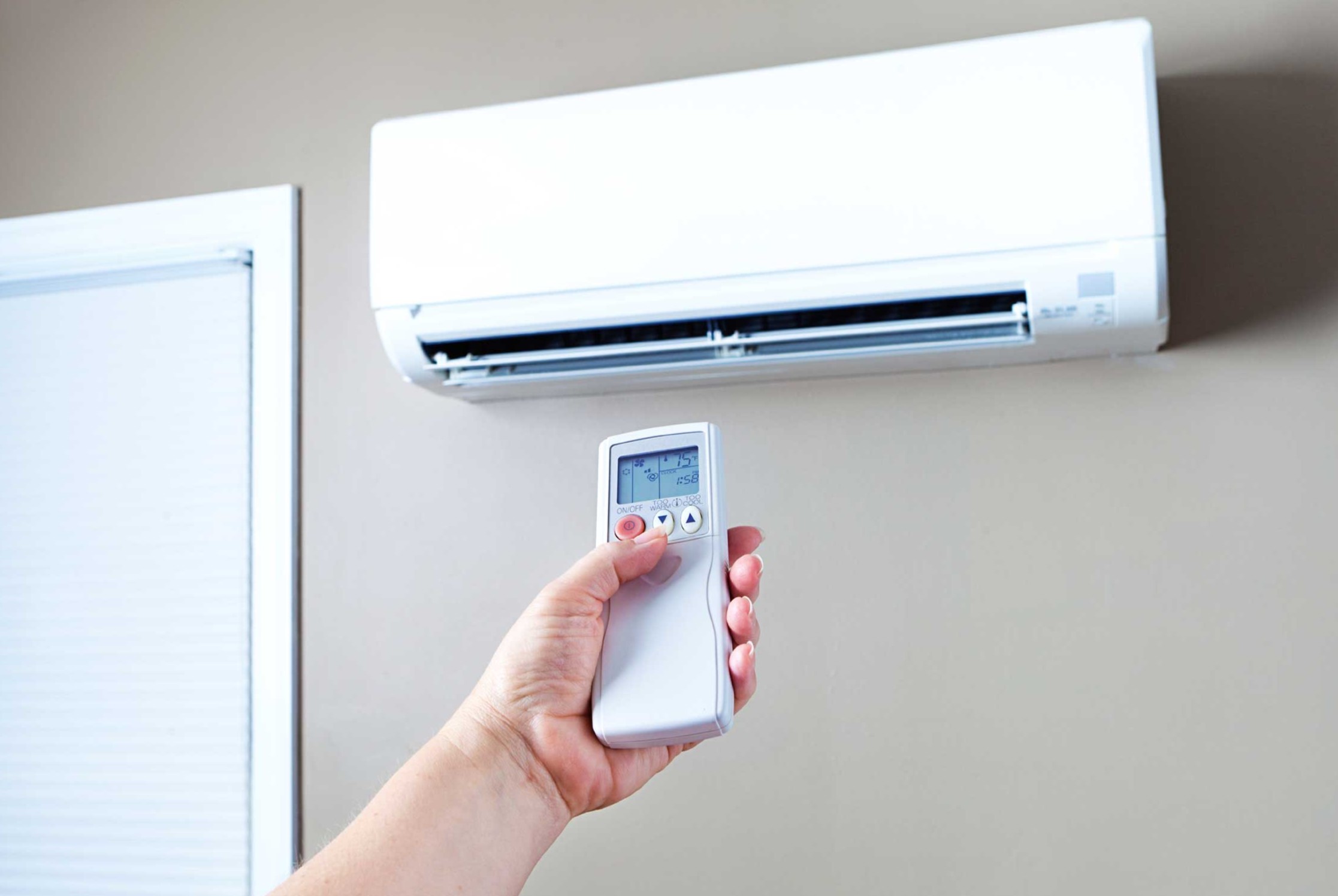

Home Maintenance
What Causes An Air Conditioner To Turn On
Modified: March 7, 2024
Discover the reasons why your air conditioner turns on and learn how to troubleshoot common issues. Keep your home cool with proper home maintenance.
(Many of the links in this article redirect to a specific reviewed product. Your purchase of these products through affiliate links helps to generate commission for Storables.com, at no extra cost. Learn more)
Introduction
An air conditioner is an essential appliance that helps regulate the temperature and improve indoor comfort in our homes. It is vital to understand the various factors that can cause an air conditioner to turn on to ensure its optimal performance. This article will explore the common causes of an air conditioner turning on, ranging from thermostat settings to power supply issues. By gaining a deeper understanding of these potential triggers, homeowners can troubleshoot problems and keep their air conditioning systems running smoothly.
When it comes to the operation of an air conditioner, there are several key elements to consider. The thermostat settings, temperature changes, humidity levels, time settings, sensor issues, power supply, filter problems, and refrigerant issues can all contribute to the turning on of an air conditioner. Let’s delve into each of these factors to gain a comprehensive understanding of what causes an air conditioner to turn on.
Key Takeaways:
- Keep your thermostat settings in check to ensure your air conditioner turns on when you want it to. Adjusting the temperature and programming schedules can help maintain a comfortable indoor environment while saving energy.
- Regularly maintain your air conditioner’s filters, sensors, and refrigerant levels to prevent unexpected turn-ons and ensure efficient operation. Addressing these issues promptly can optimize performance and save energy.
Read more: What Causes An Air Conditioner To Freeze Up
Thermostat Settings
The thermostat plays a crucial role in controlling the operation of an air conditioner. It serves as the command center that determines when the cooling system should turn on and off. The thermostat settings can cause an air conditioner to turn on if they are not properly adjusted.
If the thermostat is set to a temperature that is higher than the current room temperature, the air conditioner will turn on to lower the temperature and achieve the desired level of comfort. Similarly, if the thermostat is set to a lower temperature than the current room temperature, the air conditioner will activate to cool the room.
In some cases, the thermostat may be programmed to follow a specific schedule, such as turning on in the morning and off at night. This programming ensures energy efficiency and comfort. However, if the programmed schedule is not aligned with your preferences or needs, it may cause the air conditioner to turn on when you don’t want it to. Consider adjusting the thermostat settings to fit your lifestyle and desired indoor climate.
Furthermore, it is important to check that the thermostat is functioning properly. A malfunctioning thermostat may cause the air conditioner to turn on unexpectedly or fail to turn on when needed. If you suspect any issues with your thermostat, it is recommended to consult a professional HVAC technician for a thorough inspection and potential repairs.
Keeping the thermostat settings in check and ensuring their accuracy is crucial to maintaining appropriate indoor temperatures and avoiding unnecessary operation of the air conditioner.
Temperature Changes
One of the primary factors that can cause an air conditioner to turn on is a change in temperature. When the temperature in your home rises above a certain threshold, the air conditioner kicks into action to bring it back to a comfortable level.
This temperature threshold is usually set by the thermostat. For example, if you have set your thermostat to 72 degrees Fahrenheit and the temperature in your home goes above this, the air conditioner will automatically turn on to cool the room.
Temperature changes can occur due to various factors. For instance, during hot summer days, the temperature outside can rise significantly, leading to an increase in the temperature indoors. Additionally, activities such as cooking, using appliances, or multiple occupants in a room can generate heat, causing a rise in the temperature as well.
When the air conditioner turns on in response to temperature changes, it works by drawing in warm air from the room and passing it over evaporator coils. The coils absorb heat from the air, and the cooled air is then circulated back into the room, creating a more comfortable environment.
To ensure that the air conditioner only turns on when necessary, you can take steps to minimize temperature fluctuations. For example, you can use curtains or blinds to block out direct sunlight, which can significantly heat up a room. Additionally, sealing windows and doors properly helps prevent warm air from entering and cool air from escaping, reducing the need for the air conditioner to work harder to maintain a desired temperature.
By being mindful of temperature changes and taking preventive measures to minimize them, you can help optimize the performance of your air conditioner and reduce energy consumption.
Humidity Levels
Humidity refers to the amount of moisture present in the air. High humidity levels can make the indoor environment uncomfortable, as it can feel sticky and oppressive. To combat high humidity, air conditioners play a vital role by not only cooling the air but also removing excess moisture.
When humidity levels rise above a certain threshold, the air conditioner will turn on to dehumidify the air. The cooling process causes condensation to occur, where moisture in the air turns into water droplets. This condensation is collected and drained away, effectively reducing the humidity levels in the room.
In areas with high humidity, such as tropical climates, the air conditioner may need to run more frequently to maintain optimal humidity levels. This is especially true during periods of heavy rain or when indoor activities, such as showering or cooking, can add moisture to the air.
By controlling humidity, air conditioners not only provide comfort but also contribute to a healthier environment. High humidity can create a breeding ground for mold, mildew, and dust mites, which can lead to respiratory issues and allergies. An air conditioner that effectively controls humidity levels can help prevent these problems and promote better indoor air quality.
It is worth noting that air conditioners have a dehumidification capacity, also known as the moisture removal rate. This refers to the amount of moisture the air conditioner can extract from the air in a given period. If you live in an area with consistently high humidity, it may be beneficial to invest in an air conditioner with a higher dehumidification capacity to effectively manage the moisture levels in your home.
By addressing humidity concerns and ensuring the air conditioner’s dehumidification capabilities, you can create a more comfortable and healthier living environment.
Time Settings
Time settings play a significant role in the operation of an air conditioner. Many modern air conditioning systems offer features like programmable timers, allowing users to set specific times for the unit to turn on or off.
With programmable timers, you can optimize the usage of your air conditioner based on your daily routine. For example, you can program the air conditioner to turn on before you arrive home from work, ensuring that you walk into a cool and comfortable environment. Similarly, you can set it to turn off when you typically leave the house, helping to conserve energy.
Using time settings can also help reduce the load on the air conditioner during peak electricity demand periods. Some utility providers offer time-of-use pricing, where electricity rates are higher during certain hours of the day. By programming your air conditioner to operate during off-peak hours, you can take advantage of lower electricity rates.
Additionally, time settings can be useful for controlling the operation of the air conditioner while you sleep. Many air conditioners provide a sleep mode feature that gradually adjusts the temperature settings at night to ensure a comfortable sleep environment. By utilizing this feature, you can conserve energy and still enjoy a restful night’s sleep.
However, it is crucial to ensure that your air conditioner’s time settings are accurate and properly configured. Any discrepancies or incorrect time settings may cause the unit to turn on or off at unintended times, leading to unnecessary energy consumption or discomfort.
Regularly reviewing and updating your air conditioner’s time settings according to your needs and schedule can help optimize its efficiency and ensure that it operates when you want it to, saving both energy and money.
Check the thermostat settings to ensure it’s set to cool and the temperature is lower than the room temp. Also, make sure the air filter is clean and the outdoor unit is free of debris.
Sensor Issues
Sensors are an integral part of an air conditioning system as they help monitor and regulate temperature levels. However, sensor issues can cause an air conditioner to turn on unexpectedly or fail to turn on when needed.
The most common sensor issue is a misaligned or dirty sensor. The thermostat sensor, located near the evaporator coil, measures the temperature of the air entering the coil. If the sensor becomes dirty or gets knocked out of position, it may give inaccurate readings to the thermostat. As a result, the air conditioner may turn on unnecessarily or fail to turn on even when the correct temperature is reached.
To address sensor issues, it is important to clean the sensor regularly and ensure that it is properly aligned. Cleaning can be done by carefully wiping the sensor with a soft cloth or using a mild cleaning solution. If the sensor is misaligned, you may need to refer to the manufacturer’s instructions or consult a professional technician for assistance.
Another potential sensor issue is a faulty sensor. Over time, sensors can wear out or become damaged, causing them to malfunction. If you suspect a faulty sensor, it is best to contact a qualified HVAC technician to diagnose and replace the sensor if necessary.
It’s worth noting that some air conditioning systems have additional sensors, such as occupancy sensors or outdoor temperature sensors. These sensors help optimize the efficiency of the system by adjusting operation based on occupancy or outdoor conditions. If these sensors are not functioning properly, it may affect the air conditioner’s ability to turn on or off at the appropriate times.
Regular maintenance and inspection of the sensors in your air conditioning system can help identify and resolve any issues promptly. By ensuring the proper functioning of the sensors, you can optimize the performance of your air conditioner and minimize energy waste.
Power Supply
A reliable and uninterrupted power supply is essential for the smooth operation of an air conditioning system. Any issues with the power supply can cause the air conditioner to turn on or off unexpectedly, or not function at all.
One common power supply issue is a tripped circuit breaker. A circuit breaker is designed to protect electrical circuits from overloading or short circuits by automatically cutting off the power flow. If the air conditioner suddenly stops working, it is advisable to check the circuit breaker panel and see if the AC breaker has tripped. If it has, simply flip the breaker back to the “ON” position. However, if the breaker trips repeatedly, it may indicate a larger electrical problem that requires professional intervention.
Another power supply issue could be a blown fuse. Older air conditioning units may have a fuse box that houses fuses to protect different components of the system. If the air conditioner fails to turn on or experiences a sudden power loss, it’s worth checking the fuse box to see if any fuses have blown. If you find a blown fuse, replace it with a new one of the correct rating to restore power to the system.
In some cases, power supply issues may occur due to faulty wiring or electrical connections. This could cause intermittent power loss or voltage fluctuations, leading to problems with the air conditioner’s operation. If you suspect wiring issues, it is best to seek the assistance of a licensed electrician to assess and rectify the problem.
Furthermore, power outages or surges can also impact the functioning of an air conditioner. During a power outage, the air conditioner will not be able to operate until the power is restored. On the other hand, power surges caused by voltage spikes can damage electronic components in the air conditioner, leading to malfunctions. Installing surge protectors or using Uninterruptible Power Supply (UPS) systems can help protect the air conditioner from potential damage.
Ensuring a stable and reliable power supply is crucial for the proper functioning of an air conditioning system. Regularly checking the circuit breaker, fuse box, and addressing any wiring issues can help maintain a consistent power supply and prevent unnecessary disruptions to the operation of the air conditioner.
Filter Problems
The air filter in an air conditioning system plays a vital role in maintaining indoor air quality and overall system efficiency. However, issues with the air filter can lead to problems with the air conditioner, including it turning on unexpectedly or not functioning optimally.
One common problem related to air filters is a clogged or dirty filter. Over time, dust, dirt, and other airborne particles accumulate on the filter, reducing its effectiveness in capturing pollutants and obstructing the flow of air. When the filter becomes clogged, the air conditioner may struggle to draw in sufficient air, causing it to work harder and stay on for longer periods to reach the desired temperature.
A clogged air filter can also impact the airflow throughout your home. Restricted airflow can lead to uneven cooling, hot or cold spots, and decreased comfort. Additionally, a clogged filter can cause the evaporator coils to freeze up, leading to further disruption in the cooling process.
To address filter problems, it is essential to regularly inspect and clean or replace the air filter. The frequency of cleaning or replacement depends on various factors such as the type of filter, the amount of dust in the air, and the usage of the air conditioner. As a general guideline, disposable filters should be replaced every 1-3 months, while reusable filters should be cleaned as per the manufacturer’s instructions.
In addition to cleaning or replacing the filter, it is also important to choose the correct filter size and type for your air conditioning system. Using the wrong filter size can lead to gaps or improper fit, allowing unfiltered air to bypass the filter and potentially cause damage to the system.
Regular maintenance of the filter not only helps optimize the performance of the air conditioner but also improves indoor air quality by capturing airborne allergens and pollutants. It is recommended to include filter inspection and maintenance as part of your routine HVAC system care.
Refrigerant Issues
Refrigerant is the substance responsible for transferring heat from the indoor air to the outdoor unit of an air conditioning system. Proper levels and functioning of the refrigerant are crucial for the efficient operation of the air conditioner. Refrigerant issues can lead to problems with the system, including the air conditioner constantly turning on or not cooling effectively.
A common refrigerant issue is a refrigerant leak. Over time, wear and tear or other factors can cause small leaks in the refrigerant lines. When refrigerant leaks occur, the system may experience a drop in refrigerant levels, resulting in reduced cooling capacity. As a result, the air conditioner may run for longer periods to achieve the desired temperature, leading to reduced energy efficiency.
If you suspect a refrigerant leak, it is best to contact a professional HVAC technician to diagnose and repair the issue. They have the expertise to identify the source of the leak, repair it, and recharge the system with the appropriate amount of refrigerant.
Another refrigerant issue is incorrect refrigerant charge. If the air conditioning system does not have the correct amount of refrigerant, it can affect system performance. Overcharging or undercharging the refrigerant can lead to problems such as decreased cooling capacity, inefficient operation, and potential damage to the compressor. It is vital to have the refrigerant charge checked and adjusted by a qualified technician to ensure optimal system performance.
In some cases, outdated or environmentally harmful refrigerants may need to be replaced. As regulations evolve, certain refrigerants may become phased out due to their impact on the environment. Upgrading to a newer, more eco-friendly refrigerant can help ensure compliance and maintain the efficiency of the air conditioning system.
Regular maintenance and inspections of the refrigerant system are essential to identify and address any refrigerant issues promptly. By maintaining the proper refrigerant levels and addressing any leaks or charges, you can ensure that your air conditioner operates efficiently and effectively.
Conclusion
An air conditioner turning on is a natural response to various factors that affect the indoor environment. By understanding the different causes of an air conditioner turning on, homeowners can troubleshoot issues and ensure optimal performance of their cooling systems.
The thermostat settings play a critical role in determining when the air conditioner should turn on or off. By setting the thermostat to the desired temperature and programming it to align with your schedule, you can maintain a comfortable environment while maximizing energy efficiency.
Temperature changes also trigger the air conditioner to turn on. When the ambient temperature rises above the desired level, the air conditioner kicks into action, cooling the room and bringing it back to a comfortable state. Managing temperature fluctuations through preventive measures like using blinds or curtains to block sunlight and sealing windows and doors can help minimize the workload of the air conditioner.
Humidity levels can also prompt the air conditioner to turn on. High humidity increases discomfort and affects indoor air quality. Air conditioners help by dehumidifying the air, reducing the moisture content and improving overall comfort and health. In areas with consistently high humidity, ensuring the air conditioner has sufficient dehumidification capacity is beneficial.
Time settings allow you to optimize your air conditioner usage based on your daily routine. By utilizing programmable timers, you can schedule the air conditioner to turn on and off at specific times, reducing energy consumption and maintaining comfort. Additionally, time settings can help in taking advantage of off-peak electricity rates and adjusting sleep mode settings for a restful night’s sleep.
Sensor issues, such as misaligned or faulty sensors, can lead to incorrect temperature readings and affect the operation of the air conditioner. Regular cleaning, alignment, and maintenance of sensors will help ensure accurate temperature readings and system performance.
Power supply problems, such as tripped circuit breakers or blown fuses, can interrupt the operation of the air conditioner. Regularly checking and maintaining the power supply by resetting the breakers, replacing blown fuses, and addressing any electrical wiring issues will help maintain a stable power supply and prevent unnecessary disruptions.
The air filter plays a crucial role in maintaining indoor air quality and system efficiency. Regular cleaning or replacement of the air filter ensures optimal airflow and prevents clogging, which can cause the air conditioner to work harder and consume more energy.
Refrigerant issues, such as leaks or incorrect charges, can impact the cooling capacity and efficiency of the air conditioner. Regular inspections and maintenance by HVAC professionals will help identify and address refrigerant-related issues, ensuring optimal system performance.
In conclusion, understanding the causes of an air conditioner turning on allows homeowners to troubleshoot problems effectively and optimize the performance of their cooling systems. Regular maintenance, proper utilization of features, and addressing any issues promptly will ensure energy efficiency, comfort, and a longer lifespan for the air conditioning system.
Frequently Asked Questions about What Causes An Air Conditioner To Turn On
Was this page helpful?
At Storables.com, we guarantee accurate and reliable information. Our content, validated by Expert Board Contributors, is crafted following stringent Editorial Policies. We're committed to providing you with well-researched, expert-backed insights for all your informational needs.
